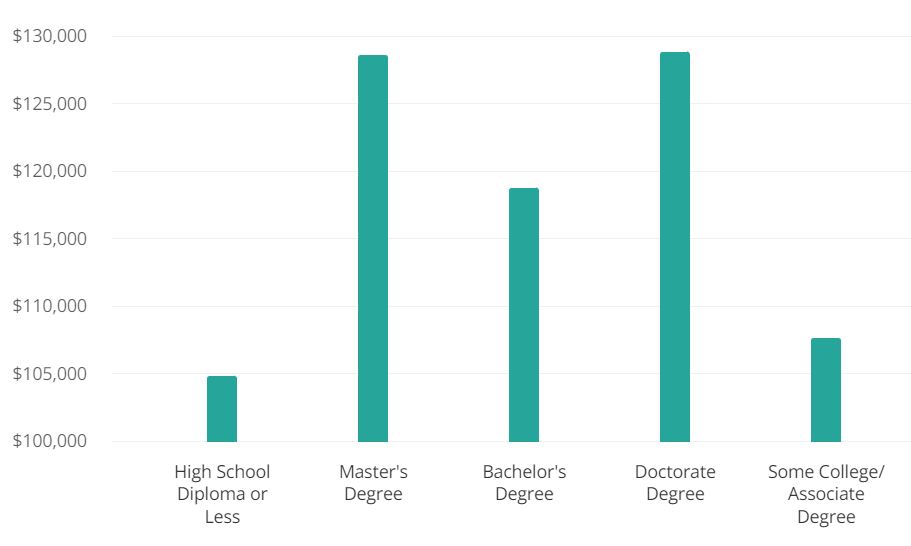Data science is making rapid strides in today’s business world, with companies spending millions of dollars yearly on research and development. Novel innovations are constantly happening in the rapidly evolving field of data science, and corporations must have what it takes to keep up with the changing technologies.
“If you’re not building an operating model around data and analytics, you are falling behind your competition,” says Louise Keely from Ernst & Young LLP in an interview.
A report by Gartner predicts up to 90% of global corporations will explicitly mention information as a vital asset for an enterprise. Moreover, data science is not a singular entity as it is the amalgamation of multiple domains like statistics, machine learning, mathematics, computer science, and others. One of the most vital but less talked about is the field of data architecture.
Data architecture is a structure that describes an organization’s data strategy, which is supported by a robust IT infrastructure. It establishes the data access and storage guidelines, laying the groundwork for data processing, analysis, and applications utilizing artificial intelligence (AI).
In other words, a set of rules, models, policies, and standards that manage the data systems for an organization is called data architecture. As a result, the industry is always looking for skilled data architects that can refine their business processes and assist a team of competent data scientists, data engineers, developers, and software engineers.
Why do Candidates Struggle to Land Good Data Architect Jobs?
Zippia reports that data architect is one of North America’s fastest-growing job profiles. The infographic below shows data architects’ average salary based on their qualifications.

Source: Zippia
Despite being in high demand and one of the highest paid jobs as per recent surveys, many individuals find it challenging to get data architect jobs. Here are some reasons why talented people struggle to get the data architect job of their dreams.
- Candidates often get rejected for a data architect position because of a lack of relevant experience.
- Some companies prefer a master’s degree holder, which is often a massive stumbling block.
- Meanwhile, the most popular reason data architect candidates are rejected is their inadequate skillset.
- Aspiring data architects often overlook the importance of a well-crafted resume and profile.
How to Get Data Architect Jobs?
Companies are beginning to realize the potential of data architecture to innovate their data strategy and the overall smooth functioning of their organization. Micheal Lutz, Chief Data Officer at energy major TotalEnergies SE, spoke to MIT and had this to say about the evolving domain of data architecture.
“It’s [Data Mesh Architecture] certainly a next step for our data architecture because it allows a higher organizational scalability and enables more domain specialization.”
Naturally, organizations always look for talented architects to refine their data architecture, so other data professionals like scientists and engineers can execute their functions effectively. The market is full of high-quality data architect jobs with handsome pay and exciting perks.
However, getting a stable data architect job is easier said than done. Here is a step-by-step technique by BenchPoint that will help you land a great data architect job.
1) Get an Undergraduate Degree in IT or Data Science
Getting a bachelor’s degree is the first step in most job profiles, and data architecture is no different. However, data architecture is a technical domain, so a degree in a related field will be a huge advantage. Candidates with undergraduate degrees in information technology, engineering, data science, or statistics are more likely to become renowned data architects.
Physics, management, or business degrees will also come in handy for aspiring data architects if they build their technical skills also. Generally speaking, potential data architects should go for an undergraduate degree in statistics, computer science, mathematics, or a related field.
2) Do Internships to Get Rudimentary Experience
A data architect is not an entry-level job in most companies as they’re looking for an individual with a demonstrated experience in computer science or statistics. Hence, aspiring data architects should do internships after completing their undergraduate degrees. Some people also do part-time internships while pursuing their bachelor’s degrees.
However, you should ensure that these internships are in computer science, data analytics, or a related domain. The entire purpose of such training is to test the fundamental knowledge you’ve acquired and get a taste of what it is like to apply those basics to solve real problems.
3) Get Relevant Skills
As with any other technical job, data architects must have the necessary skills to execute their functions properly. In fact, the primary reason why aspirants fail to get the best data architect jobs is due to a deficiency in their skillset and hands-on experience with those abilities. Hence, data architects must go the extra mile and gain expertise in one or more skills related to data architecture. Here are the top in-demand skills for data architects:
- Coding
- Proficiency in Multiple Languages, mainly Python, Java, and C/C++
- SQL and NoSQL
- Data Mining and Modeling
- Machine Learning
- Applied Mathematics and Statistics
- Hadoop technologies, like MapReduce, Pig, and Hive
Besides the above-mentioned skills, data architects must acquaint themselves with other technologies like Operating systems, database management systems, and web frameworks. The below infographic shows the most preferred technologies used by today’s data architects.

Source: Stack Overflow
4) Gain Experience as a Data Architect
The next step to getting the data architect job of your dreams is to test the skills you’ve acquired in a business environment to solve complex problems. It would be best to start looking for data architect jobs when you feel you’ve amassed enough knowledge and experience to ace an interview and assist a team of data scientists and engineers. Technology, finance, and healthcare are among the top recruiting industries for data architects. Here is a graph that shows which industries employ the highest number of data architects.

Source: Zippia
The entry-level jobs for data architects typically involve working as an assistant to a senior-level professional and assisting them in their duties. The role might seem menial or repetitive at first, but getting some hands-on experience is necessary. Candidates who have worked with a data science team or as an assistant of a senior data architect have a higher chance of getting a good data architect job in the future.
5) Consider Getting Certified
Getting certified is one of the best ways to showcase your expertise in a particular skill and propel your data architect career to newer heights. Many large multinational firms, including IBM, Google, and Amazon, offer cutting-edge courses for data architects who are eager to expand their skill set with additional certifications.
The majority of organizations offer four certification levels, each of which calls for a specific amount of relevant industrial experience. Associate, Practitioner, Master, and Fellow are the four levels of accreditation. The minimum amount of work experience needed for the Associate level certification is typically six months, but the Fellow level certification demands a minimum of 25 years of industry experience.
6) Build a Compelling Resume
The penultimate stage in finding a professional data architect is creating a visually appealing resume that successfully highlights your qualifications and abilities. A competent data architect may not get hired if their resume is inadequate and fails to convince a potential employer of their qualifications. Hiring managers must sort through hundreds of applications for a single position, so applicants must make every effort to differentiate themselves from the competition.
A data architect candidate’s ideal CV will showcase their greatest assets and significant expertise. It should highlight and communicate the candidate’s pertinent abilities, professional background, and credentials to the recruiter. Deserving data architecture job seekers who wish to get a well-paying job with a respectable organization have a competitive advantage with a well-written resume.
7) Pursue a Master’s Degree
Getting a Master’s degree goes a long way for data architects who want to work at the highest level. As suggested by the figure above, data architects with a doctorate or a master’s degree earn significantly more than those with only an undergraduate degree.
Furthermore, earning a Master’s degree opens up numerous avenues for aspiring professionals looking for data architecture roles in senior management positions. Data science, computer science, applied mathematics, and related fields are the most appropriate fields of study for a Master’s degree for data architects.
Closing Words
Data scientists, engineers, and analysts are some of the job categories with the fastest growth in the global economy. They are essential for businesses that rely extensively on Big Data and related technologies and employ data-driven techniques to enhance operational efficiency. As a result, job seekers frequently struggle to locate a good data architect position that pays well and matches their qualifications and skill set.
For more information on where to look for a career as a good data architect, get in touch with BenchPoint, a healthtech recruitment agency, right away. Our firm is a healthcare IT staffing leader and has demonstrated data science expertise.
